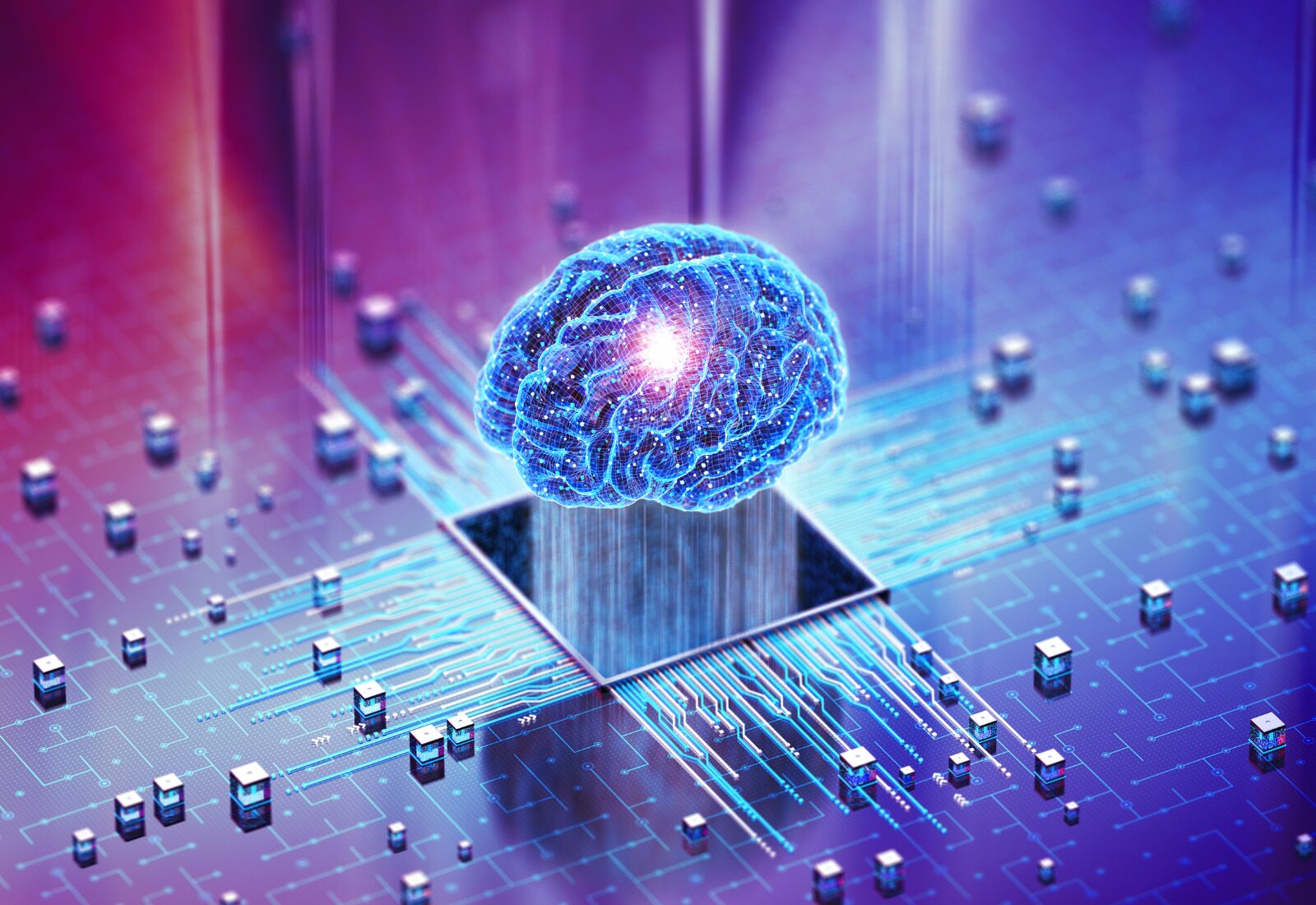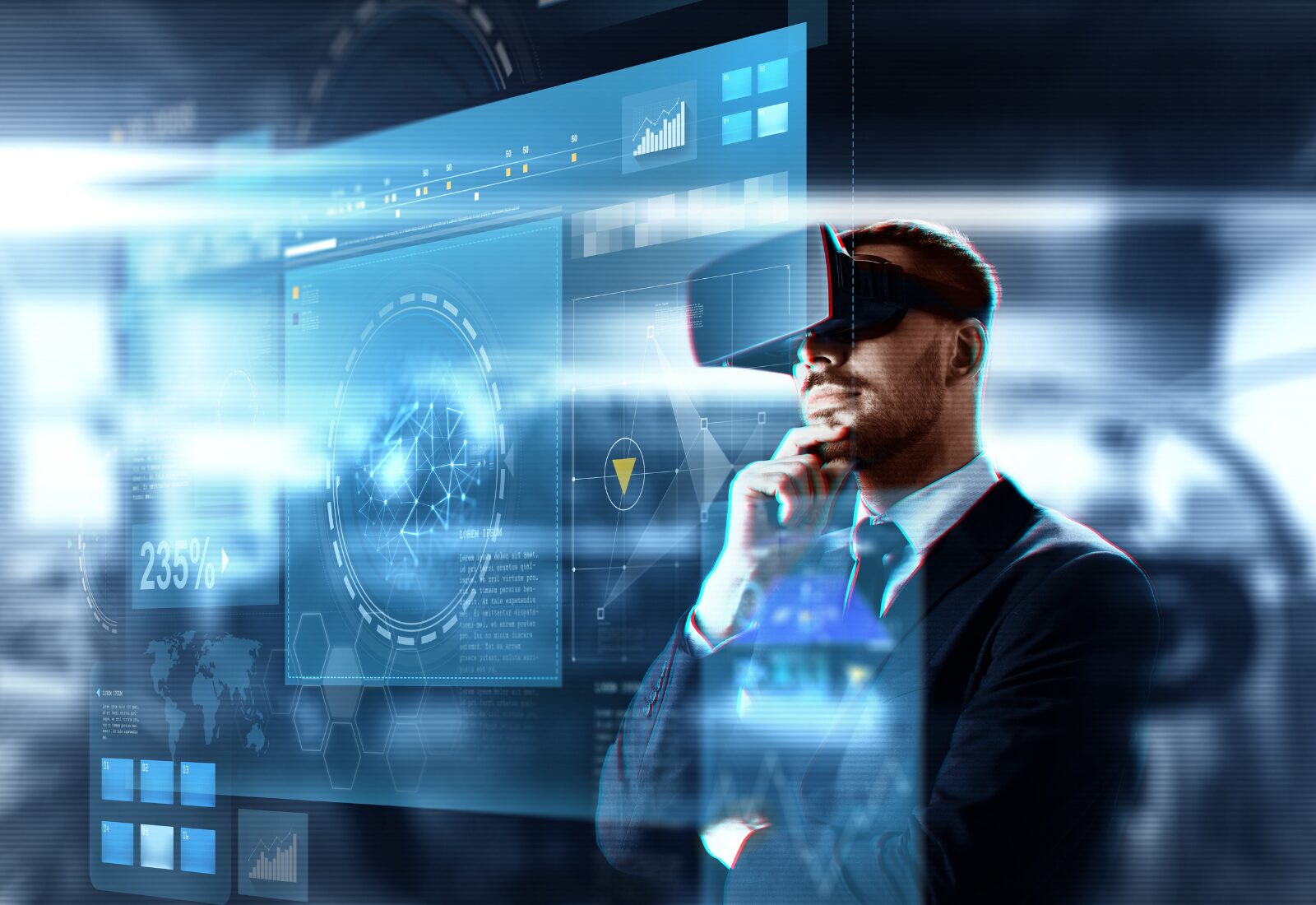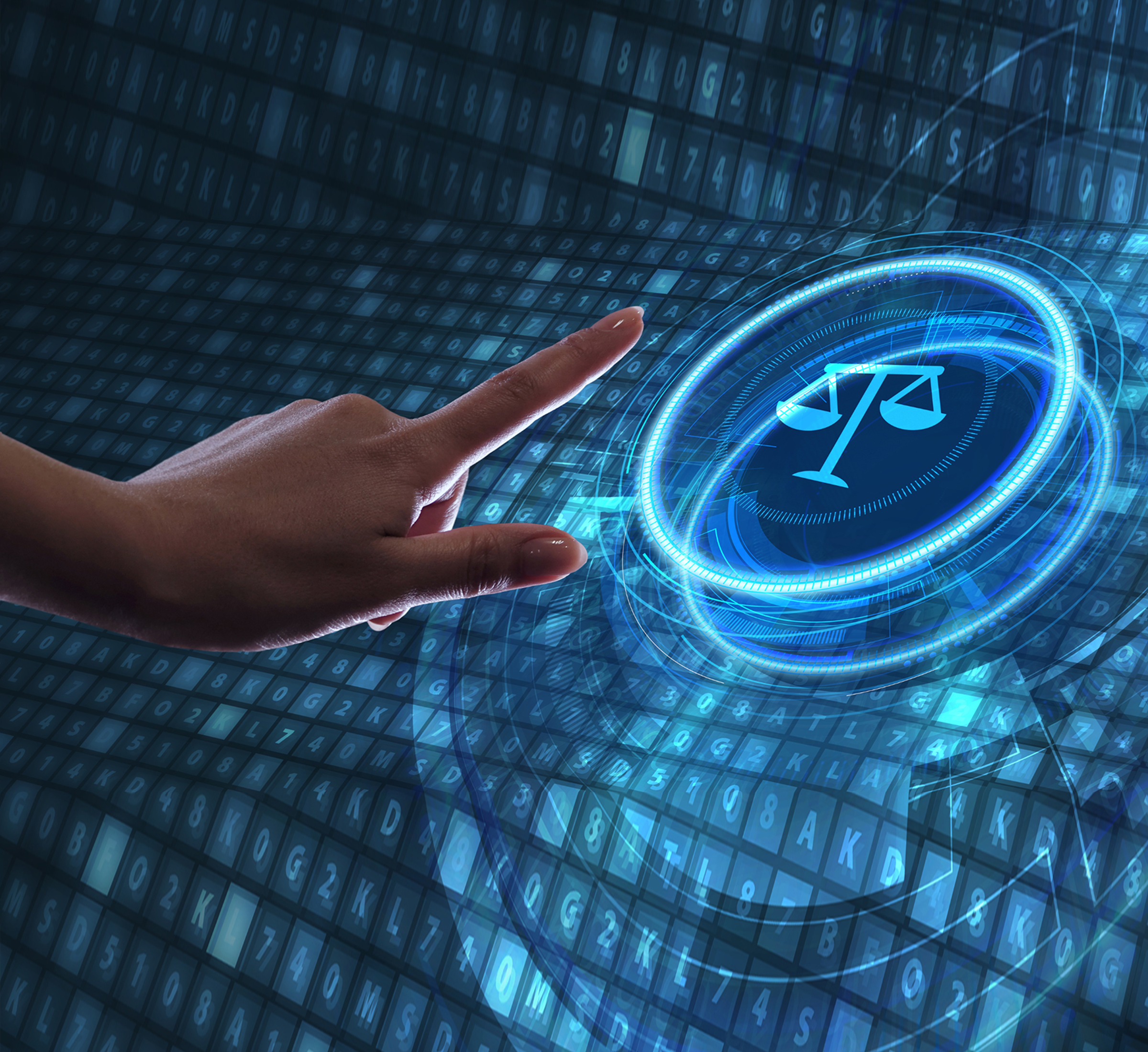Get in Touch with Our Artificial Intelligence Law Team
Get started by filling out the form, or call 1-888-330-0010 to schedule a free initial consultation.
"*" indicates required fields



At Harris Sliwoski LLP, we recognize the profound impact these technologies have on businesses and the unique legal challenges they present. Our AI Practice is a multidisciplinary team with extensive experience in various international and domestic sectors, all dedicated to helping our clients navigate the legal complexities of AI and ML while capitalizing on the opportunities they offer.
Contact UsThe rapid advancements in AI and ML are propelling new inventions and innovations, making intellectual property (IP) protection more critical than ever. At Harris Sliwoski LLP, we provide comprehensive legal guidance to ensure that your AI-driven innovations are fully protected, allowing you to maintain a competitive edge in the marketplace.
Our services include:

In the era of AI and ML, data is the lifeblood of innovation. However, the use of vast amounts of data brings with it substantial legal challenges, particularly in the areas of data privacy and cybersecurity. Our firm is at the forefront of advising clients on how to navigate these challenges, ensuring that their AI initiatives comply with the ever-evolving landscape of data regulations.

The regulatory environment surrounding AI is rapidly evolving, with new laws and regulations being introduced worldwide. At Harris Sliwoski LLP, we provide proactive legal counsel to help our clients stay ahead of these changes, ensuring that their AI initiatives are both compliant and ethically sound across international jurisdictions.
AI is transforming every industry, from manufacturing and finance to e-commerce and education. Each industry presents unique legal challenges. At Harris Sliwoski LLP, we offer tailored legal solutions that address the specific needs of our clients in these diverse sectors.

AI can be both a business asset and a tool. AI-related transactions are complex, requiring careful legal oversight to ensure that intellectual property is protected, assets are viable and secure, and regulatory compliance is maintained. At Harris Sliwoski LLP, we bring our deep understanding of AI technologies to bear in structuring and negotiating transactions that advance our clients’ strategic objectives.

As AI technologies continue to expand globally, companies must navigate a complex web of international laws and regulations. Harris Sliwoski LLP provides expert guidance on cross-border legal issues, ensuring that our clients’ AI initiatives comply with international standards and local laws in multiple jurisdictions.

As AI technologies proliferate, the potential for legal disputes increases. From intellectual property litigation to regulatory enforcement actions, our litigation team is prepared to defend our clients’ interests in any forum in any jurisdiction.


At Harris Sliwoski LLP, we not only advise clients on AI-related legal matters but also embrace AI to enhance our own legal services. We are committed to staying at the cutting edge of AI technology, using these tools to deliver more efficient and high-quality legal services.

The world of AI and ML is dynamic and rapidly evolving, presenting both opportunities and challenges for businesses across all sectors. Harris Sliwoski LLP’s AI Practice is here to guide you through this complex landscape, providing expert legal counsel tailored to your specific needs. Contact us today to learn more about how we can help your business thrive in the age of AI.
Get started by filling out the form, or call 1-888-330-0010 to schedule a free initial consultation.
"*" indicates required fields
AI systems often rely on large datasets, including personal data, which raises significant privacy issues. Compliance with data protection regulations such as GDPR (General Data Protection Regulation) and CCPA (California Consumer Privacy Act) is crucial to ensure data is handled securely and transparently. Businesses must implement stringent data governance policies to mitigate these concerns. For instance, in the case of Google LLC v. CNIL (2019), Google was fined €50 million for failing to obtain valid user consent for personalized advertising under GDPR. This highlights the severe financial and reputational consequences of non-compliance with data protection laws.
Businesses must adopt comprehensive data governance practices, including secure data storage, transparent data collection policies, and obtaining proper consent from data subjects. Regular audits and compliance checks are essential to ensure ongoing adherence to privacy laws like GDPR and CCPA. Engaging with legal experts to continuously update data handling practices in line with evolving regulations can help avoid costly legal repercussions. The Schrems II case, where the Court of Justice of the European Union invalidated the EU-US Privacy Shield framework, underscores the importance of robust data transfer mechanisms and the need for businesses to stay current with regulatory changes.
Misleading claims about AI products can result in regulatory actions by bodies like the FTC (Federal Trade Commission), legal disputes with consumers or competitors, and significant reputational damage. Companies must accurately represent their AI products’ capabilities to avoid these issues. In FTC v. Lumos Labs, Inc. (2016), the FTC fined the company $2 million for deceptive marketing claims about the cognitive benefits of their AI product, Lumosity. This case illustrates the potential financial penalties and loss of consumer trust that can result from false advertising claims about AI technologies.
If an AI system malfunctions, the responsible entity could face substantial legal liabilities, particularly if the malfunction causes harm or financial loss. Robust risk management strategies and comprehensive insurance policies are essential to mitigate these risks. For example, the Tesla Autopilot crashes have prompted numerous lawsuits and regulatory investigations, highlighting the critical need for companies to have rigorous safety protocols and liability management strategies in place. Detailed performance records and proactive safety measures can help in defending against such liability claims.
To mitigate biases, businesses should use diverse training datasets, regularly test AI systems for biased outcomes, and adjust algorithms as needed. Independent audits can help identify and correct biases, ensuring the AI systems operate fairly and ethically. In State v. Loomis (2016), the use of a biased risk assessment algorithm in sentencing decisions sparked significant controversy and highlighted the legal and ethical implications of biased AI. Implementing transparency and fairness checks in AI systems can help avoid similar controversies and legal challenges.
AI systems, especially those using complex algorithms, can be opaque in their decision-making processes. Ensuring AI decisions are explainable and transparent is critical for building trust and meeting regulatory standards. Implementing explainable AI (XAI) techniques can help businesses provide stakeholders with clear insights into AI decision processes, thereby enhancing regulatory compliance and user acceptance. The EU’s AI Act proposal emphasizes the need for transparency and accountability in AI systems, which can serve as a valuable framework for businesses aiming to ensure compliance and foster trust.
Yes, there are significant ethical considerations in using AI, including ensuring fairness, avoiding bias, respecting privacy, and preventing harm. Companies must proactively address these issues to maintain public trust and adhere to ethical standards. Establishing an ethics committee or advisory board can help guide AI development and deployment in alignment with ethical principles. The IEEE Global Initiative on Ethics of Autonomous and Intelligent Systems offers comprehensive guidelines, such as prioritizing human well-being and ensuring AI systems do not perpetuate unfair biases, providing a robust foundation for ethical AI use.
Companies should stay informed about legal developments in AI, consult with legal experts specializing in AI, implement rigorous compliance programs, and maintain the flexibility to adapt to new legal requirements. Proactive engagement with regulators and stakeholders can also help navigate emerging legal challenges. Regular training sessions for staff on AI-related legal issues can further bolster compliance and preparedness. The case of Microsoft Corp. v. United States (2016) underscores the importance of understanding and preparing for legal complexities, particularly concerning data privacy and government access to information in AI and cloud computing contexts.
AI regulation varies significantly across jurisdictions. Companies operating internationally must understand and comply with the laws in each region where their AI systems are deployed. Engaging with legal experts familiar with local regulations is crucial for global compliance. Developing a centralized compliance framework that accommodates regional variations can streamline multinational operations and reduce legal risks. For example, the differences between the EU’s GDPR and China’s Cybersecurity Law necessitate tailored compliance strategies for businesses operating in both regions to avoid legal pitfalls and ensure seamless operations.
AI can affect employment by automating tasks traditionally performed by humans, potentially leading to job displacement. Companies must navigate labor laws concerning employee rights, retraining, and potential layoffs responsibly to mitigate negative impacts on the workforce. Collaborating with labor unions and investing in employee retraining programs can ease the transition and maintain workforce morale. The automation practices at Amazon warehouses have faced scrutiny and legal challenges, emphasizing the importance of addressing labor concerns and maintaining compliance with employment laws to avoid similar disputes.
AI can potentially affect competition by enabling anti-competitive behaviors such as price-fixing or market allocation through algorithmic coordination. Regulators are increasingly scrutinizing how AI technologies can lead to monopolistic practices. Companies should ensure their AI strategies comply with antitrust laws to avoid legal penalties. The European Commission’s investigation into Google (2017), which resulted in a €2.42 billion fine for anti-competitive practices, demonstrates the importance of maintaining competitive practices and transparency in AI algorithms to avoid regulatory actions.
AI in healthcare offers opportunities for improved diagnostics, treatment plans, and patient outcomes. However, it also raises issues related to patient privacy, data security, and compliance with healthcare regulations like HIPAA (Health Insurance Portability and Accountability Act). Ensuring ethical and regulatory compliance is crucial for healthcare providers using AI. The FDA’s framework for AI/ML-based software as a medical device (SaMD) provides detailed guidelines for regulatory compliance, emphasizing the need for rigorous validation and monitoring of AI systems to ensure patient safety and data security.
AI systems can infringe on existing patents if they use patented technologies without authorization. Companies should conduct thorough patent searches and ensure their AI solutions do not infringe on existing patents. Additionally, patenting AI innovations can protect intellectual property rights. Engaging with patent attorneys can help in drafting robust patents and avoiding infringement disputes. The case of Thaler v. Commissioner of Patents (2021), which questioned AI’s ability to be named as an inventor, highlights ongoing debates in AI patent law and the evolving nature of intellectual property rights in AI.
AI can enhance contract analysis and management by automating the review process, identifying key terms, and ensuring compliance with contractual obligations. However, AI tools must be accurate and reliable to prevent significant legal and financial repercussions from errors. Regular validation and updates of AI tools can help maintain their accuracy and reliability, reducing the risk of contractual disputes. For example, IBM Watson Contract Management provides advanced AI capabilities for contract analysis, illustrating the practical benefits and legal considerations of integrating AI into contract management processes.
AI can enhance cybersecurity by improving threat detection, automating responses to cyberattacks, and analyzing vast amounts of data to identify vulnerabilities. Conversely, AI systems can be targets for cyberattacks, and malicious actors can use AI to develop sophisticated attack methods. Robust cybersecurity measures and continuous updates are essential to protect AI systems. Incorporating AI-driven cybersecurity solutions can also fortify defenses. Legal professionals should refer to the Cybersecurity Information Sharing Act (CISA) and NIST’s AI security guidelines for additional regulatory context, emphasizing the importance of proactive cybersecurity strategies.
Currently, AI systems are not legal entities and cannot be held directly liable. However, the responsibility for an AI system’s actions typically falls on its developer, programmer, or user. This ongoing legal debate has significant implications for accountability and liability in AI deployment. The case of Uber’s self-driving car fatality in Arizona, where a pedestrian was killed, highlights the complex liability issues surrounding AI systems. Legal professionals should stay abreast of developments in AI liability law, including proposals for AI-specific legal frameworks, to navigate these challenges effectively.
The development and deployment of self-driving cars involve complex legal issues related to liability, safety regulations, and data privacy. Companies must navigate these challenges to ensure compliance and minimize legal risks associated with autonomous vehicle technology. Legal cases such as Waymo v. Uber (2017), which involved trade secrets and autonomous vehicle technology, offer crucial insights into the legal landscape. Regulatory bodies like the National Highway Traffic Safety Administration (NHTSA) provide guidelines and standards for autonomous vehicle safety, highlighting the importance of adhering to regulatory requirements and maintaining rigorous safety protocols.
AI technologies can revolutionize the legal system by automating routine tasks, improving legal research, and making legal services more affordable and accessible. This can significantly enhance access to justice, especially for underserved populations. Notable applications include ROSS Intelligence and other AI-based legal research tools that streamline case law analysis, making legal information more accessible to lawyers and non-lawyers alike. Legal professionals should reference initiatives like the ABA’s Center for Innovation, which explores how technology can improve legal services, and consider the ethical implications outlined in ABA Model Rules 5.1 and 5.3 regarding the use of non-lawyer assistants, ensuring that AI tools are used responsibly to support legal practice.

“Harris Sliwoski expertly guided us through the formation of our company. They continue to assist with necessary registrations and compliance with numerous regulations. They were able to promptly answer all our many questions and provide understandable options, explanations and practical advice. We expect to continue to use Harris Sliwoski on a regular basis as our company expands. They were also able to introduce us other professional experts. We would not hesitate to recommend Harris Sliwoski to any companies in need of legal advice.”
This law firm was a huge help as our company went through the process of commercial licensing in the California cannabis industry. They have helped us with a variety of legal issues in a timely fashion, while clearly communicating with us throughout the process. Everyone we’ve worked with at Harris Sliwoski is an expert in their field and we have always felt that we were in good hands through our legal representation.
Legal stuff is always scary. And I’ve had to play offense a couple times, begrudgingly. To have Harris Sliwoski have my back? It made things a lot less prickly. They quickly walked me through my options, and were refreshingly consistent in their communications, timing and billing. I’ve been lucky to stay out of the legal side of things my whole career, thankfully. When things went a little wrong, Harris Sliwoski quickly made things right.
I am impressed with this law firm. They answered all my questions regarding cannabis businesses and the California cannabis framework, and they have helped me with a variety of legal issues in a timely fashion, while always clearly communicating with us throughout the process. They also redirected me to other quality people for my business needs. Everyone I worked with at Harris Sliwoski is an expert in their field, and I was in good hands throughout my legal representation.
I have been working with the lawyers at Harris Sliwoski for more than 20 years both as a business owner and as an executive at a large east-coast health system and that is because they have always efficiently provided high level and clear international law advice. Most recently, Harris Sliwoski provided legal support on many matters related to procuring medical products worldwide. Their support was particularly helpful to during the onset of COVID, when there was a big need for securing PPE quickly, all while navigating complicated international and domestic legal requirements. Harris Sliwoski’s team of international lawyers helped by conducting rapid-fire due diligence on potential suppliers, navigating the legal logistics for getting product from overseas and through U.S. customs, and drafting contracts to protect against various sorts of horribles. They did this by essentially providing what amounted to 24/7 service. I cannot recommend them highly enough.
Harris Sliwoski has represented our company in the legal cannabis industry for years. Harris Sliwoski has advised us in a wide variety of legal matters, and they are truly experts in their field. I would highly recommend Harris Sliwoski to anyone with questions about cannabis law, or any legal matters. They have been great for our Company, and will continue to guide us as our industry evolves
You won’t find a better partner than Harris Sliwoski when trying to navigate the complex world of healthcare regulations. They not only give sound and reliable legal advice, but they are also very responsive and are able to guide you in a way that helps you reach your business objectives as well.
When we started the process of building a ‘seed to sale’ cannabis company in Oregon, we saw the need for expert legal counsel. The cannabis sector is fraught with potential peril at every turn, and we wanted the best legal advice we could find. After talking to several firms and individuals, we feel extremely fortunate to have chosen Harris Sliwoski as our legal counsel.
We use Harris Sliwoski on all our international legal matters, including on our international litigation matters. We have over the last few years been involved in a couple big international legal disputes and Harris Sliwoski’s international dispute resolution team provided us with expert legal assistance on both matters. They were always very careful to explain to us what they were doing and why and what their actions would likely cost us in legal fees. Most importantly, we did extremely well on both cases and I have no doubt Harris Sliwoski was a big factor in that.
We have used Harris Sliwoski for legal help related to our international manufacturing. The lawyers with whom I worked had extensive familiarity with the international legal issues involved in our various projects and offered us key insights. I particularly appreciated how they always quickly and efficiently do what they say they will do and always within their cost estimates.